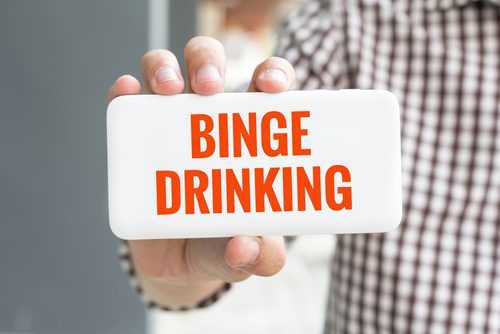
How Is Binge Drinking Defined?
Binge drinking is a pattern of drinking where one drinks heavily during a single occasion, which leads to intoxication. Generally, this pattern of drinking consists of drinking five or more alcoholic beverages for men and four alcoholic beverages for women. There is a high correlation between binge drinking and DUIs and car accidents or injuries.
Adolescents are more prone to binge drink and often continue to binge drink well into their 20s. In older adults, binge drinking carries with it significant health concerns such as heart disease. Binge drinking in adolescents has not been found to predict alcohol dependence; however, as one ages, there is a stronger relationship between binge drinking and alcohol dependence.
Binge drinking used to be characterized by drinking large amounts of alcohol over an extended period of time, say for several days. Nowadays, substance abuse and mental health professionals characterize binge drinking as consumption of large amounts of alcohol over a shorter period of time, like several hours, where the blood alcohol concentration is high. The amount of alcohol consumed is different for different cultures. In the United Kingdom, binge drinking is defined as consumption of eight or more drinks for men and six drinks for a women.
During adolescence and early adulthood, 90% of the alcohol consumed in this age group is in the form of binge drinking. Currently, there are estimates that 11% of 8th graders, 30% of 12th graders, and 40% of college students report binge drinking. Around age 22, binge drinking begins to decline and is found lowest among those who are 55 years of age and older. Almost half of binge drinking occurs in those with alcohol dependence.
Most people who engage in binge drinking episodes reduce this behavior on their own, without formal intervention. This can be seen in college students who binge drink throughout their college careers but who stop the binge drinking once they are out in the “real world.” The binge drinking no longer serves a purpose for the college student who now has a job and other personal responsibilities.
If a person has frequent binge drinking episodes in adolescents and young adulthood and continues the behavior into adulthood, the likelihood of developing an alcohol dependence rises significantly. Interventions such as motivational interviewing and harm reduction approaches have been found to be effective in reducing binge drinking episodes across all age groups.







